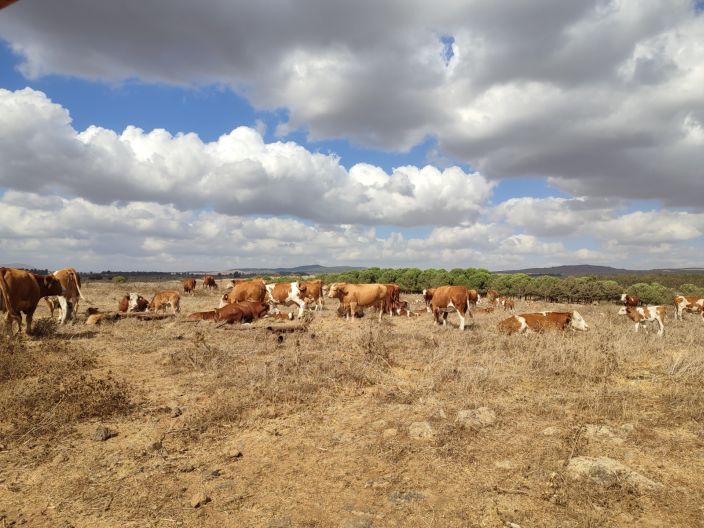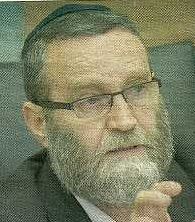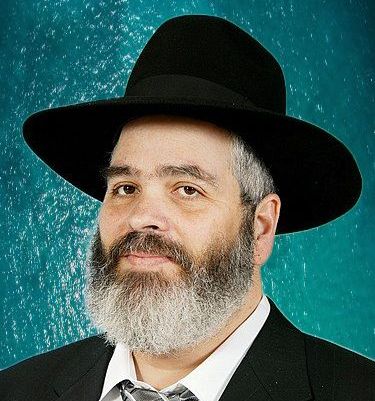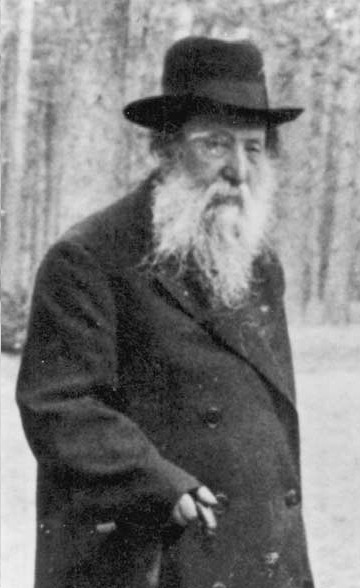  |
|
| ||||||
This Google Custom Search looks only in this website. So Far the Driest Winter in 50 Years
The winter of 5783 is the driest winter in the past fifty years. This is reported by the Meteorological Authority and the Water authority. Their estimate applies to the amount of rainfall in Israel since the beginning of the winter which equals only 57% of the average annual figure.
Israel is now entering the second half of its rainy season, preceding an amount of rainfall which was small and short, after four years of rain which surpassed the average figure. This is testified by data accumulated by the Meteorological Authority proving that this was a year of relative drought, primarily in the northern part of the country.
MK Rabbi Gafni presented a proposal requiring proportional chareidi representation in the various government bodies, a similar bill which was passed in the past. This new proposal attempts to determine that the representation be proportional to the amount of chareidim in the general population.
According to the estimation of the Central Bureau of Statistics, the chareidi sector in Israel is some 600,000 people. Other research bodies estimate the figure to be over one million. However, despite this relatively high figure in the overall population, the actual number of chareidi employees in governmental positions is much lower.
The Rightist camp is all but helpless against the wild incitement and the malicious propaganda directed against the government regarding the proposed reform in the judicial system. For many years, the media succeeded in praising and promoting this system, as if it were the be-all and end-all of everything. This is because it served the Leftist agenda in enabling the Leftist camp to rule the country, even when the Right was in power.
The decay, the putrefaction, corruption, pig-headedness and all the other ills of the judicial system were concealed and camouflaged since this served the agenda of those of the Leftist camp which thinks of itself as representing the 'enlightened man' and not the Rightist 'rabble.'
This extended historical series about the battles over the rabbinate in Vilna was originally published in 1995 (5755).
Chapter Three
In the first part we read about the background of Vilna, the Yerushalayim of Lithuania, and its rabbonus. We saw that the real position of Chief Rabbi of Vilna was left unfilled for more than a hundred years, out of respect, until the secular authorities insisted on the appointment of a rav to administer the registration of demographic information such as births, deaths and weddings. The community was required to appoint such a "rav meitaam," and the choice came down to a test of strength between the traditional side lead by HaRav Chaim Ozer and the reformers and maskilim. Before his election, Rav Rubinstein, a former yeshiva student, promised Reb Chaim Ozer that he would stay clear of any involvement in Vilna's communal institutions. In return he was backed by Reb Chaim Ozer and elected. However, he did not keep his promise and during World War I when Reb Chaim Ozer was not in Vilna, Rabbi Rubinstein took over many community institutions.
Electing The Rav
Rain and Kinneret Watch by Dei'ah Vedibur
Staff
Our weekly report of the rain and the level of the Kineret -
Winter, 5783.
* * *
Outstanding Articles From Our Archives
"Shilton Hamma'aseh": The Teachings of the Rambam
by Yated Ne'eman Staff
The first part discussed the basic principle as found in the Rambam that action is primary. Even though the Rambam is known for his achievements in philosophy, and has a reputation as a supreme rationalist, his actual writing is replete with statements about the important of keeping the deeds demanded by the Torah, even if they cannot be understood by reason. The primacy of actions in Judaism must remain today the keynote to the life of the Jew.
Jewish Religious Education
By Rav E. Ozer and B. Re'eim
One Man's Potential
The yeshiva world was suffused with joy at the celebration of the marriage of Reb Eizel Kastiakovsky, known as Reb Eizel Vilner and who was already one of the leading scholars of the Mir, to the daughter of the rosh yeshiva, HaRav Yechiel Mordechai Gordon zt'l.
The wedding was graced with the presence of a large number of the greatest Torah personalities of the day. HaRav Chaim Ozer Grodzensky zt'l was the mesader kiddushin. HaRav Boruch Ber Leibowitz zt'l and HaRav Shimon Shkop zt'l, were honored with Brochos and HaRav Yeruchom Leibowitz zt'l, the Mirrer mashgiach, danced with all his might to honor the chosson and the new illustrious father-in-law.
One key figure was conspicuous by his absence - the kallah's father, the Lomzher Rosh Yeshiva HaRav Yechiel Mordechai. The wedding took place during one of his stays in America to relieve the yeshiva's financial straits and he was unable to interrupt his visit to return home for his own daughter's wedding.
This disturbing vignette captures much that typified Rav Yechiel Mordechai's life. For decades, he ranked among the greatest roshei yeshiva. He stood at the helm of one of the largest of the great yeshivos that flourished in prewar Poland and Lithuania and devoted every ounce of his strength to the spiritual and material needs of his hundreds of talmidim. Under Rav Gordon, Lomzha became one of the first Lithuanian yeshivos to open a branch in Eretz Yisroel - a yeshiva that played an important role in the early development of the Torah community. Yet his life was beset by difficulties and he suffered repeated personal tragedy and loss. Despite his heavy burdens and his sorrows, he always radiated tranquility and joy and extended kindness and grace to all.
Rav Yechiel Mordechai Gordon was just twenty-four years old when he was appointed Rosh Yeshivas Lomzha.
By Rebbetzen Nomi Travis
Question: "I'm considered an older girl. All my classmates are married. I've been dating for many years . . . They often criticize me for being too picky and are very disappointed when for one reason or another their suggestions don't work out. I feel criticized, put down, judged . . . "
Answer:
Can I truly empathize with the pain of others? Can I really put myself in the place of someone who has gone through the high expectations and emotional involvement of years on end in shidduchim?
You might think: "It's easy for you to write such an article. You're married." But as every single person in this world, I also have my trials. My goal in this article is certainly not to judge anyone or tell them what to do. I'm writing as a shadchan who tries to feel for others, with others.
I remember Craindel*, a sweet girl from a respected familiy, who was in shidduchim for many many years. She was always very appreciative of people who kept her in mind. The years were passing and if she didn't try almost every segula around, believe me, she tried all the ones she knew of. Going to the Kosel for 40 days, saying Shir Hashirim for 40 days, prayers from Chazal, gaonim, rishonim and acharonim . . . And she took shidduchim seriously. She really tried . . . She prayed with kavana, asked for advice on dating and inquiries, was realistic about what to look for, etc. Her relatives and married friends begged me and others to help find her mate.
One day, I suggested that she meet Igal*. Craindel was willing to meet him, even though she had certain hesitations.
|
||||||




.jpg)



